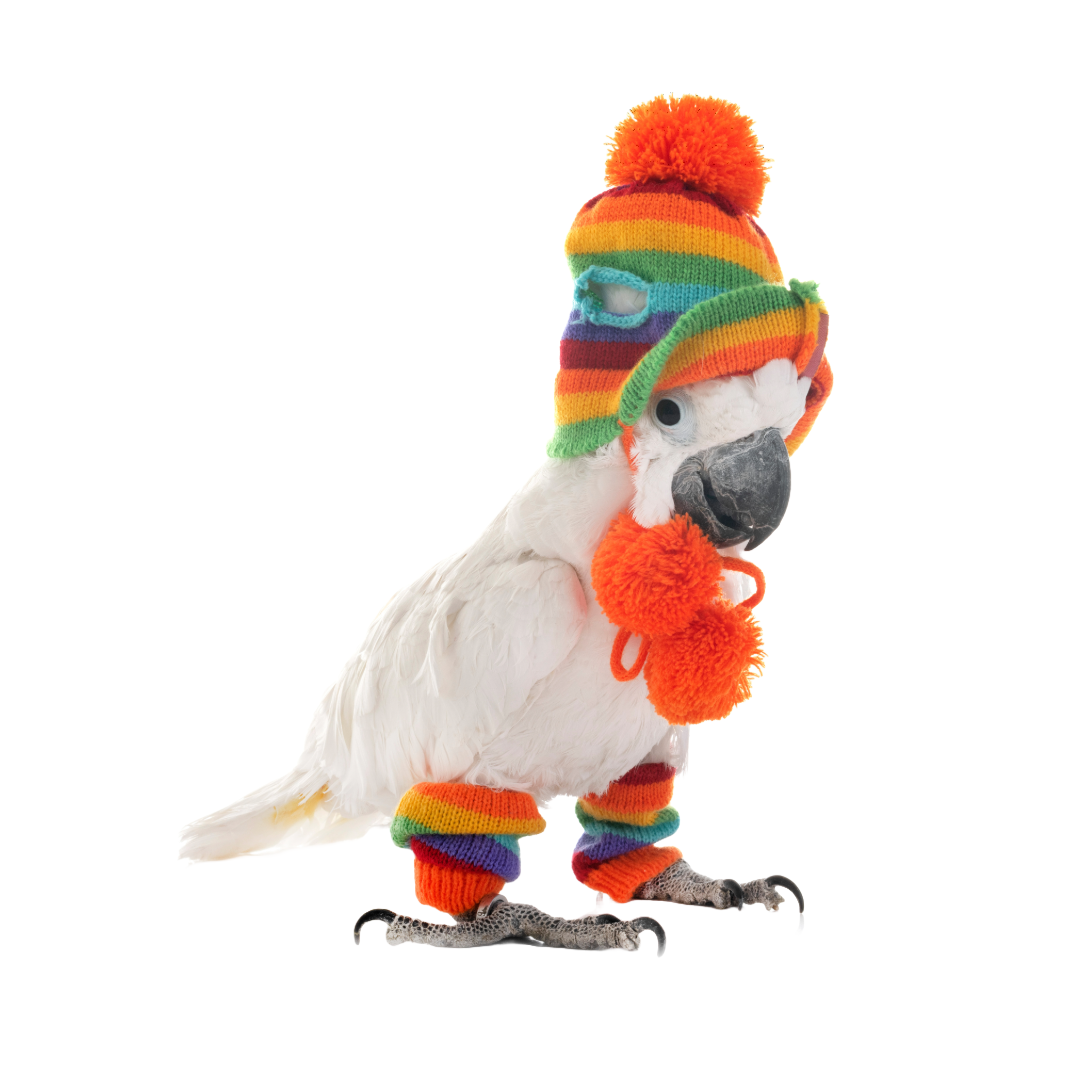As the winter months approach, it’s essential to pay special attention to the well-being of your beloved parrots. These beautiful creatures have unique needs that require extra care during the colder seasons. By following a few guidelines, you can ensure that your feathered friends stay healthy and happy throughout the winter.
Adequate rest:
One fundamental aspect of parrot care is providing them with adequate rest. Just like humans, parrots need their sleep when the sun goes down. During the winter months, the days are shorter, and it’s crucial to create a conducive environment for their natural sleep patterns. Designate a quiet, dark room where your parrot can settle in for the night. Covering the cage with a lightweight, breathable cloth can help create a sense of darkness and security, mimicking their natural habitat. By ensuring they have an undisturbed rest, you’re helping them maintain their physical and mental well-being.
Increased food consumption:
In addition to creating a suitable sleep environment, it’s vital to meet their nutritional needs. During the winter, birds, including parrots, may naturally increase their food consumption. This is because their bodies need extra energy to stay warm in colder temperatures. As a responsible parrot owner, it’s important to provide them with a well-balanced diet to support their overall health. Include fresh fruits, vegetables, and high-quality parrot pellet. These provide essential vitamins, minerals, and nutrients that are crucial for their immune system and vitality. Additionally, you can offer treats, as these can be a great source of healthy fats for your feathered friend. Our snacks range from our Veggie Treats to Tropical Sensation are perfect for this.
Correct water temperature:
While ensuring a nutritious diet, it’s equally important to provide ample access to fresh water. Parrots, like all living creatures, require hydration for their bodily functions. In colder weather, the water may get chilled quickly, so it’s essential to regularly check and replace it with fresh, lukewarm water. Avoid using metal containers that can retain the cold, and opt for ceramic or plastic bowls that are easy to clean and maintain. If you use plastic bowls please make sure that they are good quality and that they don’t break easily as your feathered friend can swallow the plastic.
Hygienic Environment:
Maintaining a clean and hygienic living space for your parrot is crucial, especially during the winter when they spend more time indoors. Regularly clean their cage, including the bars, perches, and tray, to prevent the accumulation of droppings and potential bacteria. Replace the bedding material and wipe down the surfaces with a bird-safe disinfectant to ensure a healthy living environment. This practice reduces the risk of respiratory issues and keeps your parrot’s overall well-being in check.
More interaction:
Remember, parrots are social animals that thrive on interaction and attention from their human companions. The winter months can sometimes bring a sense of isolation, so it’s crucial to spend quality time with your parrot. Engage them in interactive play, teach them new tricks, or simply enjoy their company through gentle conversation. Your love and attention will create a positive and stimulating environment for your parrot, warding off any feelings of loneliness during the colder days.
Conclusion:
In conclusion, caring for your parrot during the winter months involves some additional considerations, but the rewards are immeasurable. By providing a quiet, dark room for sleep, ensuring a nutritious diet with ample food and water, maintaining a clean living space, and showering them with love and attention, you are safeguarding their health and happiness during the winter season. Cherish these delightful creatures and embrace the joys of being a responsible parrot owner all year round.

